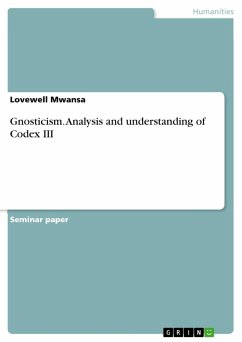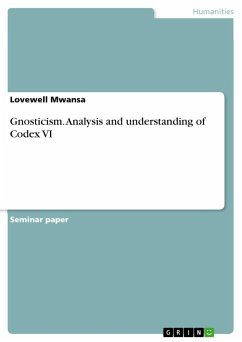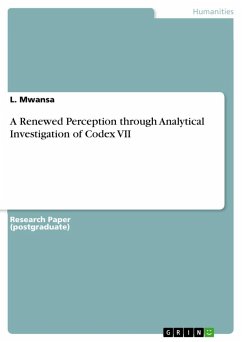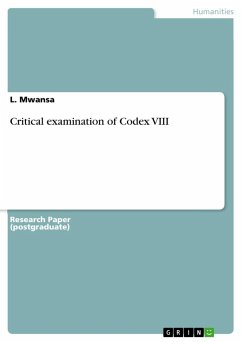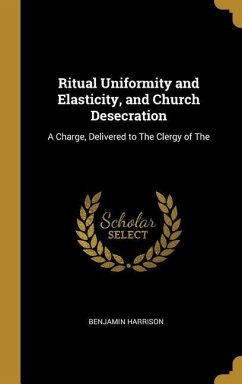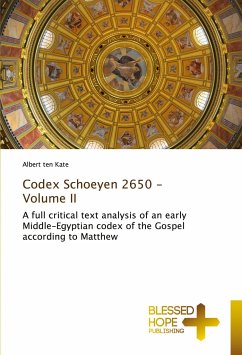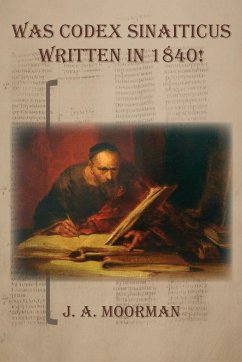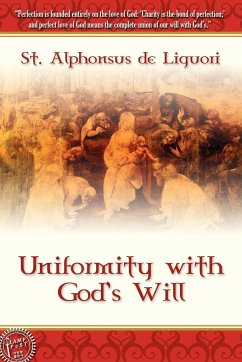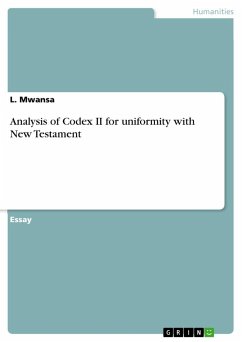
Analysis of Codex II for uniformity with New Testament

PAYBACK Punkte
0 °P sammeln!
Essay from the year 2023 in the subject Theology - Biblical Theology, , language: English, abstract: In this essay, I have endeavored to analyze possible uniformity and discrepancies between Gnosis texts and the New Testament. C.W. King states that the term "Gnosticism" is derived from the Greek word, Gnosis, knowledge, a word specially employed from the first dawn of religious inquiry to designate the science of things divine. According to Sean, the Gnostics themselves kept no official histories. It was simply not of interest to them to document how and why their philosophy began, the main fo...
Essay from the year 2023 in the subject Theology - Biblical Theology, , language: English, abstract: In this essay, I have endeavored to analyze possible uniformity and discrepancies between Gnosis texts and the New Testament. C.W. King states that the term "Gnosticism" is derived from the Greek word, Gnosis, knowledge, a word specially employed from the first dawn of religious inquiry to designate the science of things divine. According to Sean, the Gnostics themselves kept no official histories. It was simply not of interest to them to document how and why their philosophy began, the main focus of their teaching being gnosis. Scholars are therefore still debating the origins of Gnosticism. It is traditionally thought to be a form of Christianity that flourished in the first centuries, and that is certainly the impression one gets from reading the Church Fathers. In fact, it is a slightly misleading assumption, as Gnosticism probably had its roots in or at least was influenced by Jewish Pagan and Iranian traditions that predate Christianity. While recognizing that the Church of the mid second century still depended on verbal tradition of the apostles, Irenaeus realizes that the Gnostics have meddled with the ¿unadulterated truth¿ of apostolic tradition. He appeals to the preservation of true tradition entrusted to the ¿succession of bishops¿ and ¿presbyters¿ instituted by the apostles throughout the Church ¿everywhere¿ in this crisis of authority.




